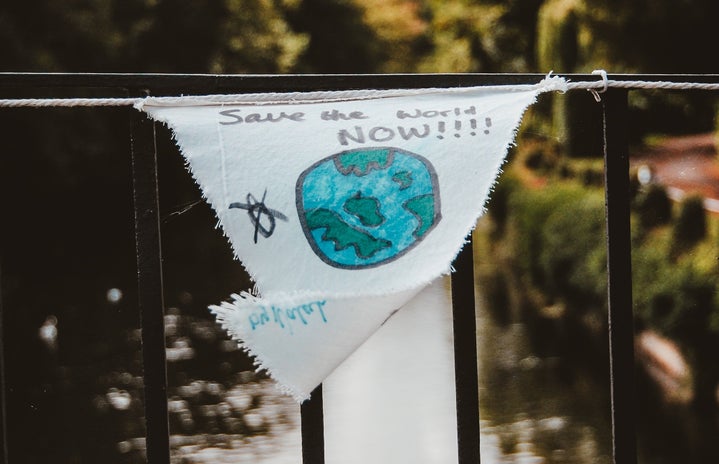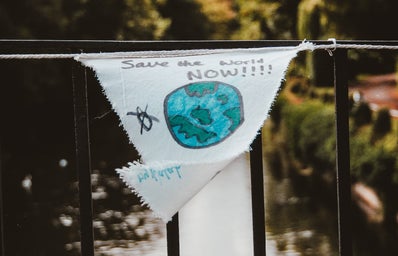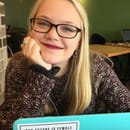Over the summer, we have all probably seen Puerto Rico’s flag waving in the air above masses of island residents, marching shoulder-to-shoulder in the summer heat, along with the hashtag #RickyRenuncia on Twitter calling for the resignation of Puerto Rican Governor Ricardo Rosselló— and with him the Federal Control Board. That’s right, today we are talking about one of the United States oldest remaining colonies.
In the midst of all the political chaos, I realized recently that many people still don’t know what is happening in Puerto Rico, or don’t have people in their social circles talking about it. Thankfully for all of y’all, my Puerto Rican pals in Lansing have kept me updated all summer and have shared all the memes about how Puerto Rico can get rid of corrupt authority figures faster than the entirety of the United States.
We can trace the social, economic and political unrest of Puerto Rico back to 1898, when the United States invaded Puerto Rico, a colony of Spain, during the Spanish-American War. With the United States invading, Puerto Rico fell further under colonial rule. Islanders couldn’t even elect their own governor to represent them until 1947. Today, they have no voting rights in the country they were colonized by, nor any voting representation in Congress. They are hardly US Citizens— a better word would be colonial subjects under the United States.
Photo Courtesy of Jonathan Buttle-Smith
Soon after Rosselló took office in 2017, he brought in Julia Keheler, who was famous for getting government grants. Seems ideal for someone leading an education department, right? WRONG. She was terrible for the position. One of her missions was to overhaul the entire school system in Puerto Rico, which left devastation in its wake. She pushed for semi-privatized charter schools and private school vouchers, all while shutting down hundreds of still-functioning public schools. This was not well-received by parents and teachers working in public schools in Puerto Rico— many teachers and parents felt ignored by Keheler. The Teacher’s Union of Puerto Rico became one of Keheler’s vehement opponents, because if the government ain’t standing up for children, then the teachers will. Keheler was a white woman who had no knowledge of being a racial minority, left to supervise thousands of schools serving marginalized folks. Of the 1,100 public schools still open while Keheler oversaw them, around 250 schools simply didn’t open again after Hurricane Maria. Many are not surprised considering her anti-public school stance before Hurricane Maria. This left children to walk impossible distances to the nearest school, sometimes taking dangerous mountain roads to receive an education.
Photo Courtesy of Kimberly Farmer
The education department in Puerto Rico was promised $589 million dollars to reopen damaged schools in Puerto Rico after Hurricane Maria, but only received 4% of that by March. The funds expire in April 2020. The United States Department of Education found that Keheler’s department lacked the necessary means to prevent fraud and mismanagement internally. Shortly after the report was published, Keheler was arrested by the F.B.I for conspiring to steer contracts to to different firms. AKA, she’s corrupt, y’all.
However, the protesting officially started when people suspected the Governor of fraudulent activity. Then came the 889 pages of leaked chats, and, boy, was Puerto Rico feeling a revolución after that. What was the chisme in these 889 pages of leaked chats? Turns out that Governor Rosselló’s administration is under FBI investigation for it. The leaked chats outlined how Rosselló’s administration was actively seeking to suppress dissent within his party and among his rivals. Not only that, but Rosselló’s administration joked in these chats about those who died in Hurricane Maria in 2017, and coordinated to control the news media and their image through close ties to major news outlets and through cyber-trolling opponents.
Rosselló and his administration was also found pleading with the Financial Oversight and Management Board (FOMB) to alter documents that belittled Rosselló’s handling of the ongoing fiscal crisis. If this couldn’t get more horrid, Rosselló and his administration undercut the federally mandated reforms to Puerto Rico’s police.
Rosselló is just the tip of the iceberg for Puerto Rico— this scandal has just exemplified to Puerto Ricans how this crisis has been mishandled for nearly half a decade. The island already struggles with unemployment and debt, and with climate change, manifesting in events such as Hurricane Maria, hitting the island hard, as well as Rosselló’s decision to hand over $300 million dollars in relief funds to Whitefish Energy, a small inexperienced Montana company with ties to the administration, to supervise clean up of the electrical grid, left Puerto Ricans without power for over 11 months.
Photo Courtesy of Ramiro Collazo
Then, there is the neo-colonial economic mismanagement. In 2014, bonds by Puerto Rico were essentially useless when credit agencies concluded that the government could not pay off its debts. Congress then decided (recall: Puerto Rico doesn’t have ANY REPRESENTATION IN CONGRESS, so the colonizers essentially decided this for Puerto Rico) that for Puerto Rico to not use San Juan’s savings to pay the debt, there must be an oversight board to manage the budget. If you come from an underprivileged school district or city in the United States, you know these financial managers do nothing to actually help the populations they control. It is to no surprise that on the island, this oversight board is known by constituents as la junta de control. The oversight board implemented a strict austerity regime, steadily becoming more extreme and stringent.
In fact, even before Hurricane Maria, Pew Research found that the number of people in Puerto Rico dropped by over 632,000 since the peak in 2014. Many residents of Puerto Rico left after the mid-2000s financial crisis that hit the island hard (thanks, colonizers), going to the United States to find work, mainly in Florida.
These small points made in this article about the education system, colonial rule, and general governance in Puerto Rico are just a portion of all the issues that have led Puerto Rican residents to stand up and fight for justice. Though Puerto Rico is not often talked about in the United States government (sometimes officials even forget that it is a United States colony), these protests shed light on something truly beautiful. To some, these protests reveal all the struggles that Puerto Rico faces today. They exemplify the political corruption on the island. However, to someone like me, who studies Social Relations and the policies surrounding them, this marks something far more great. For all those who leave the island, there are many left behind. For every abandoned building, for every abandoned school, marginalized teachers and staff and struggling school children— there is a protest movement in the streets. If we have learned anything from islands that were brutally invaded and occupied, it’s that the natives are much stronger than the colonial forces that seek to suppress them. Right now, Puerto Rico is hope. The protests happening in the streets represent a new chapter in Puerto Rican history books written by Puerto Ricans. For the people, by the people. After all, who doesn’t love a little revolución?



